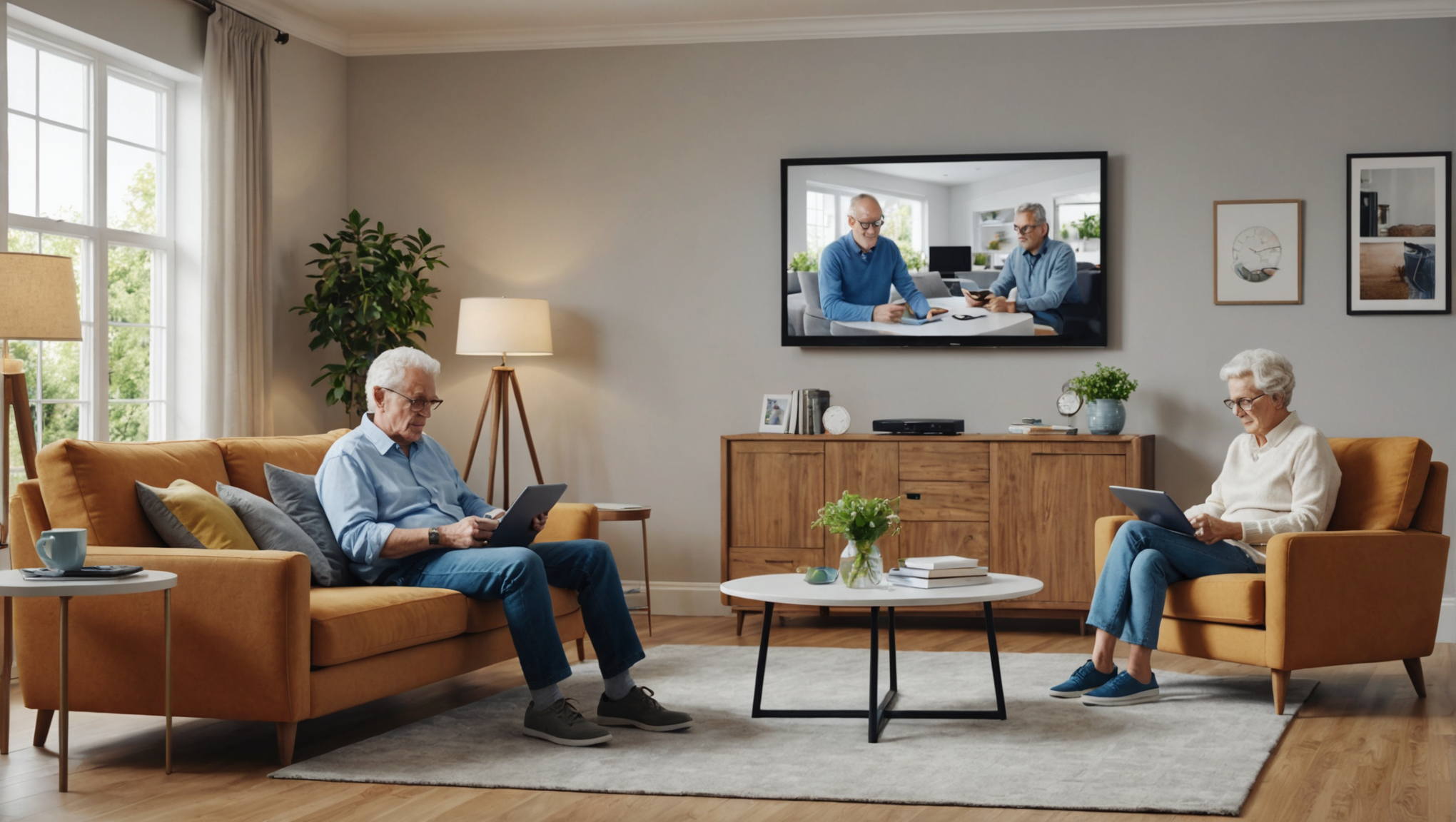Home security is a crucial concern for many people, especially the most vulnerable. There remote assistance emerges as an effective solution to meet this vital need. This innovative service offers the possibility of quickly alerting loved ones or healthcare professionals if necessary, thus allowing individuals to maintain a certain autonomy while feeling safe at home. Teleassistance is particularly aimed at the elderly, sick, or isolated people, allowing them to live in their familiar environment without fear of finding themselves in an emergency situation without help. Thanks to sophisticated devices, such as alert bracelets or dedicated phones, users can seek help at any time, even if they can’t reach a traditional phone. This system plays a key role in the prevention of domestic accidents, particularly falls, facilitating rapid intervention. By reducing the anxiety linked to loneliness and increasing responsiveness in the event of a problem, teleassistance transforms the way in which vulnerable people live their daily lives, thus offering them a better quality of life.
There remote assistance is an innovative service intended mainly for the elderly or those in fragile situations, allowing rapid reaction in the event of an emergency. This system is often provided by specialized companies which provide equipment allowing the user to call for help at any time, whether due to a fall, discomfort or simply an emergency. situation requiring intervention.
In a world where the autonomy of elderly people is increasingly valued, remote assistance represents an ideal solution to enable them to live at home in complete safety. serenity. By offering not only advice, but also genuine support, this service plays a crucial role in maintaining the dignity and autonomy of individuals. But how exactly does this system work and what are its different aspects that everyone should know?
Table des matières
ToggleHow remote assistance works
The principle of remote assistance is based on the implementation of a remote communication system. The person who benefits from it generally receives a dedicated device, such as a bracelet or pendant equipped with an emergency button. This equipment is designed to be used easily and quickly, even in moments of crisis.
When the user presses the button, a signal is sent to a dedicated call center which is often a considerable distance away. This center is then able to assess the situation, initiate emergency services, inform the user’s loved ones, or offer appropriate advice. Additionally, many modern devices also incorporate advanced features such as automatic fall detection.
There home remote assistance ensures a constant connection between the user and professionals trained to handle emergency situations. These can intervene quickly, thus minimizing waiting times if necessary. All of this contributes to creating a safer environment for individuals living alone at home.
In addition, certain services go beyond the simple alert: they also include regular monitoring, control visits, and advice on accident prevention. These proactive aspects enhance overall security, while providing peace of mind for both users and their families.
The benefits of remote assistance for home security
The benefits of remote assistance are numerous and varied. Above all, it offers increased security for the elderly and their loved ones. Here are some of the most notable benefits:
Firstly, remote monitoring allows quick reaction in case of emergency. In many cases, every minute counts, and the ability to instantly alert an emergency service can mean the difference between a major complication and a controllable situation.
Then, this system plays an important role in the maintaining autonomy. By feeling safe at home thanks to the ability to call for help at any time, seniors can continue to go about their daily lives without fear of finding themselves in difficulty without support.
In addition, teleassistance helps reduce social isolation, because many services include regular support, thus encouraging frequent human interactions. This can contribute to better mental health, an aspect often underestimated in aged care.
Finally, another essential aspect of remote assistance is its ability to reduce medical costs. By minimizing the need for hospitalizations or emergency interventions through preventive assistance, this system can represent a substantial saving for families, but also for the health system in general.
With all these elements, it becomes obvious that remote assistance is not just limited to an alert in the event of a problem. It creates an overall environment of safety where individuals feel supported every step of the way. For those who are considering integrating this system into their routine, it is wise to carefully evaluate the different options available on the market, taking into account the specific needs of the person concerned.

La téléassistance intelligente pour seniors ????
— Tech & Co (@techandco) August 29, 2024
???? @BlanchinS , Directeur des Opérations @noviacare (Groupe @equasens )
????️ @Fsorel pic.twitter.com/yzRdShSC8V
Remote Assistance and Home Security FAQ
What is remote assistance? Teleassistance is a service allowing you to call for help remotely, thus offering increased security to elderly, sick or isolated people living at home.
How does remote assistance work? This system relies on devices that detect emergency situations, such as a fall, and allow the person to contact an assistance service, even if they cannot access a traditional telephone.
What are the advantages of remote assistance? Remote assistance promotes the autonomy of seniors by allowing them to stay at home in complete safety, while having rapid access to help if necessary.
Who can benefit from remote assistance? This service is particularly intended for fragile or isolated people, such as seniors, disabled people or those suffering from chronic illnesses.
Can remote assistance prevent falls at home? Yes, many remote assistance devices include sensors that can detect falls and alert rescue teams immediately.
How to choose a remote assistance solution? To make the right choice, it is advisable to compare the different offers available, check user reviews, and consider the features adapted to the specific needs of the person.
What is the support for remote assistance? Coverage of teleassistance costs may vary depending on mutual insurance companies and assistance offered by general councils, so it is important to find out about this.








